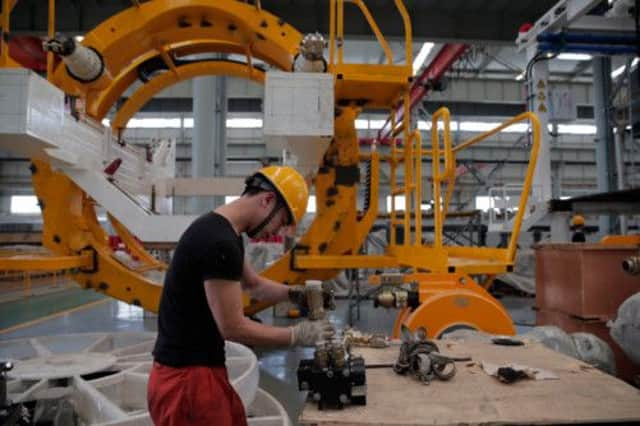China ‘crisis’ is no reason to panic


GDP growth in China declined from 7.7 to 7.5 per cent in the second quarter, it was revealed this week, with other economic indicators pointing to slower than expected growth.
While 7.5 per cent remains well ahead of western economy averages it represents the slowest in 23 years in China, where growth has now contracted in nine of the last ten quarters.
Advertisement
Hide AdAdvertisement
Hide AdThe fall has sparked warnings of a bumpy ride facing those with money exposed to the region.
Private investors and pension funds have ploughed billions of pounds into China, Asia, Far East and emerging markets funds and stocks in recent years, with a spike in 2008 and 2009 as the financial crisis unfolded.
The region’s economic growth has not always produced results for investors, however. The MSCI China Index is up just 2.6 per cent over the past three years, Trustnet figures show, compared with the 36.5 per cent growth posted by the MSCI AC World index.
And the impact of the slowdown on investor confidence has become increasingly evident in recent months. More money was withdrawn from China funds in May than invested, according to the Investment Management Association’s latest report, while fund manager sentiment on emerging markets is at its lowest in 12 years, research by Bank of America Merrill Lynch shows, due largely to concerns over the outlook for China.
Charlie Awdry, manager of the Henderson China Opportunities fund, said: “Economic indicators that we watch – manufacturing purchasing managers’ index surveys, power consumption, freight transportation – all suggest that further downgrades to Chinese growth are on the cards.”
But investment experts in Scotland are playing down the impact on savers and investors.
“Investors buy equity shares because they want to be exposed to economic growth – and with the continuing industrialisation in China, there is plenty of growth being evidenced,” said Amanda Forsyth, investment manager at Murray Asset Manager in Edinburgh.
She added a caveat, however. “As we have seen in the UK, growth funded by unruly lenders can lead to a painful correction – so the People’s Bank of China’s efforts to curb the zeal of provincial lenders is intended to ensure that the underlying growth trends are tempered rather than reversed.”
Advertisement
Hide AdAdvertisement
Hide AdOthers are more cautious on the outlook for China. Haig Bathgate, chief investment officer at Turcan Connell, pointed to a US resurgence and a shift in energy industry investment back towards the US and Latin America that has had negative implications for China.
“Additionally there has been major misallocation of capital in terms of infrastructure spend and there is a significant number of bad loans in the shadow banking sector which need to be addressed at some point. It feels like that day is fast approaching with the recent regime change,” he said.
“We’ve also seen the minimum wage increase threefold over the past few years in China which means that relative to other emerging markets it is no longer as competitive as it once was.”
China has long attracted investors on the basis of its rapidly growing economy and lack of debt, but Bathgate believes the proposition is far more complicated than that.
“The de-coupling argument that is often used has been completely discredited since the start of the credit crisis back in 2007. Nearly two thirds of Chinese GDP is driven by exports, which means they are very reliant on the western consumer.”
The slowing rate of growth in China has led to low valuations that some fund managers believe presents a golden chance for investors prepared to buy in now. That is a risky strategy, Bathgate warned.
“Inevitably the recent weakness will present opportunities but it could be like catching a falling knife in the short term,” he said.
“We’re certainly holding off increasing weightings to this area at the moment. We’d recommend exercising caution at this stage.”